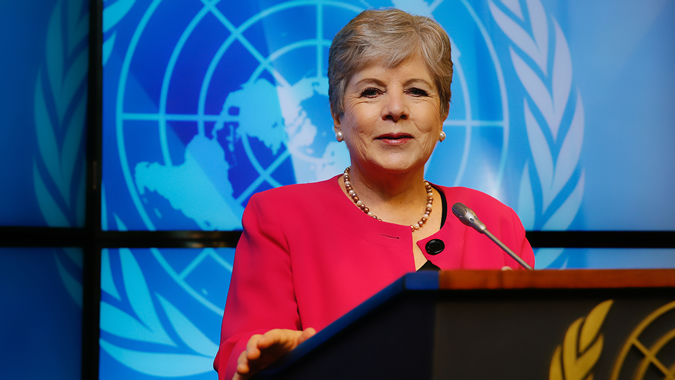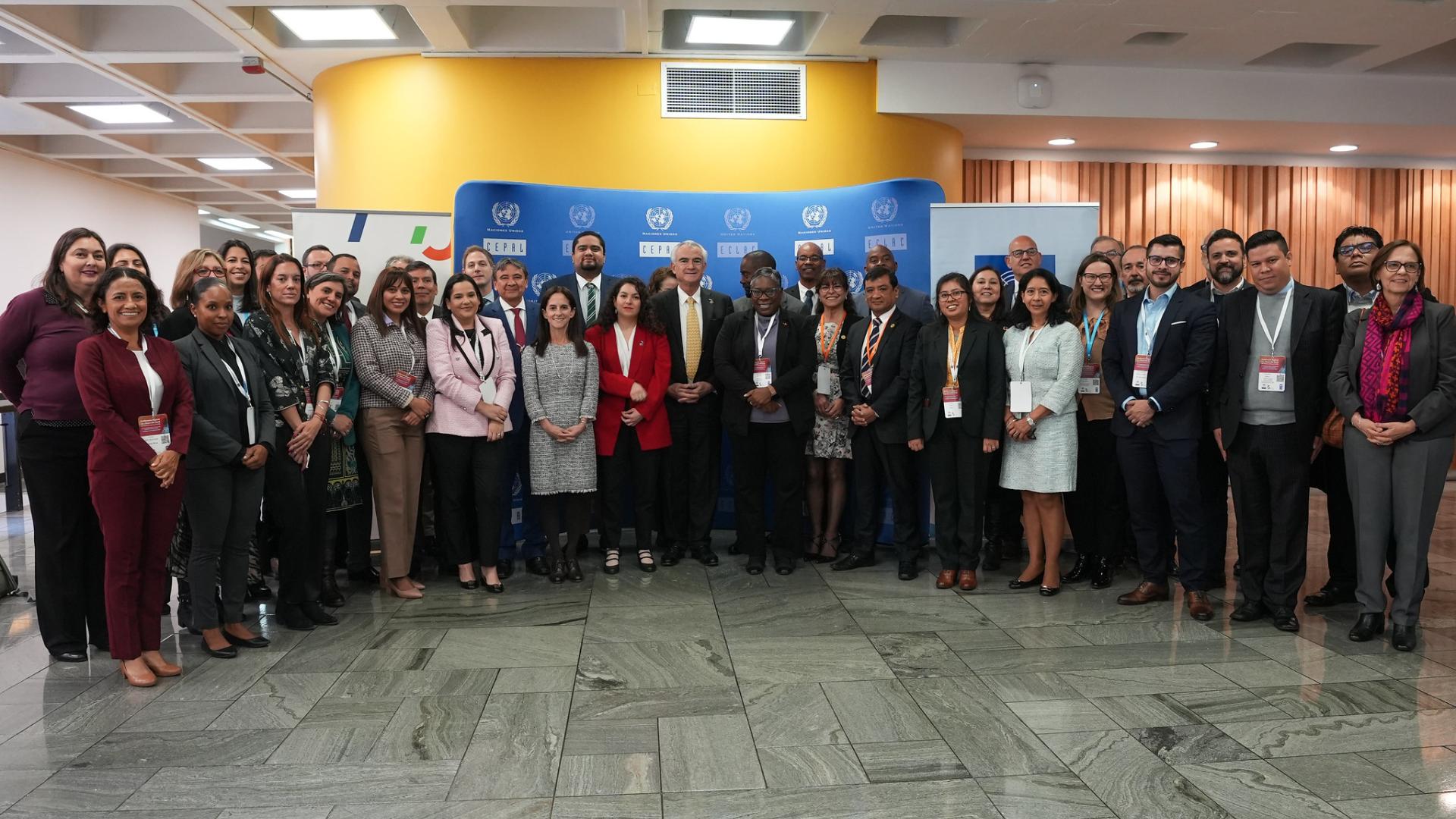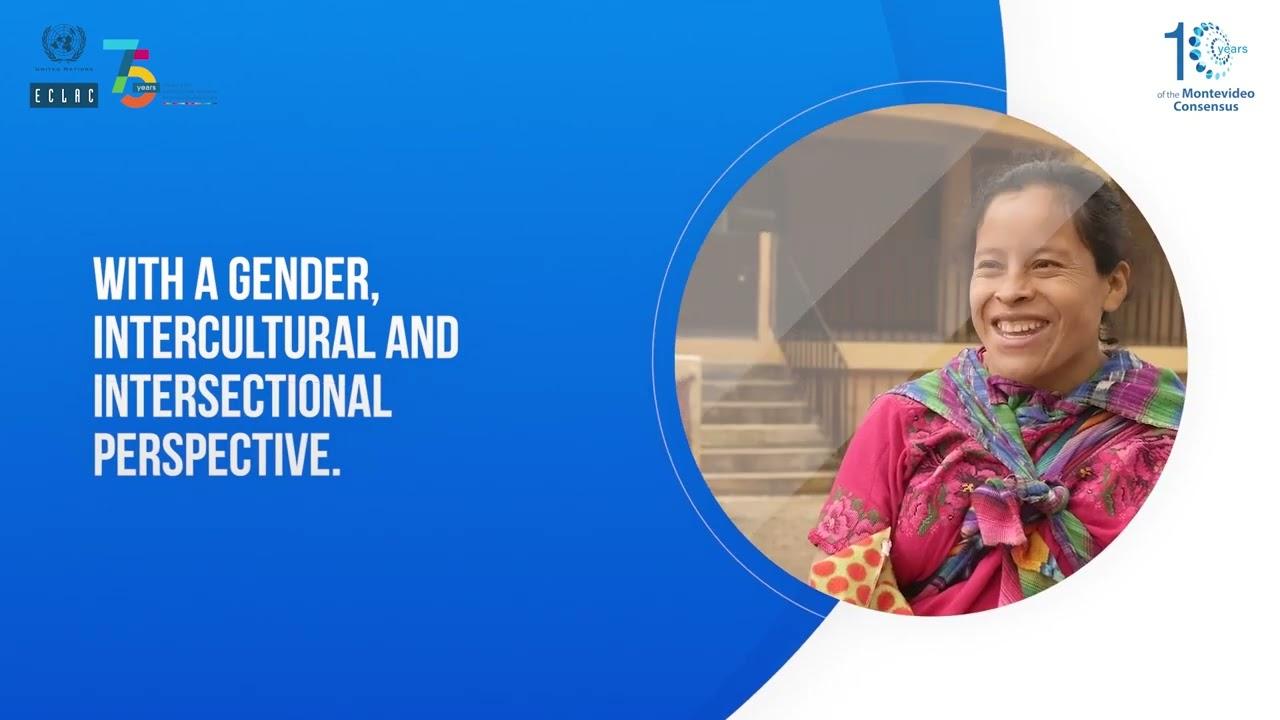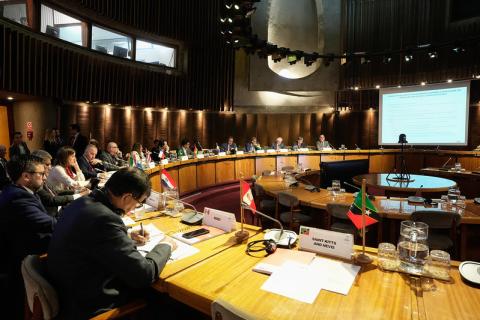Briefing note
“We must pick up the pace toward economic, climate and gender justice, and transition to a care society,” remarked Alicia Bárcena, Executive Secretary of the Economic Commission for Latin America and the Caribbean (ECLAC) during a virtual meeting organized in parallel to the High-Level Political Forum on Sustainable Development (HLPF), which meets annually under the auspices of the UN Economic and Social Council (ECOSOC).
“We do not want to return to where we were before the pandemic; we need structural change. This is an opportunity for transformational recovery, with gender equality and environmental sustainability,” emphasized Bárcena during the high-level event Women’s Integration to the Labor Force in the Covid-19 Recovery Efforts: challenges and opportunities in the promotion of decent work for women, organized by the UN permanent missions to Chile, Argentina, Mexico and the Dominican Republic, UN Women, the International Labor Organization (ILO) and ECLAC.
The high official gave an overview of the situation of women in LAC in a context in which the COVID-19 crisis has deepened the structural nodes of gender indicated in the Montevideo Strategy: socioeconomic inequality, the sexual division of labor, the concentration of power and patriarchal cultural patterns rooted in society.
Bárcena pointed out that women are on the front lines of the response to the pandemic in the region: they make up 73.2% of employment in the health sector, but earn 24% less than men.
At the same time, the COVID-19 crisis has caused a mass exit of women from the labor force in LAC, equivalent to an 18-year setback, she warned.
According to the ECLAC senior representative, one in every four women in the region between the ages of 15 and 24 neither study nor are employed. But 75% percent of these young women take care of dependents. In the case of men, the proportion is one in 10, and only 9.3% of them are involved in caregiving, she indicated.
Likewise, four out of 10 women do not have internet access and can’t afford connectivity, which poses an obstacle to their economic autonomy.
In this context, she underscored, we must have short-term proposals to mitigate the effects of the pandemic, and medium-term policies to achieve structural transformations.
“We have to measure the contribution of paid and unpaid care work and how this contributes to the economy. We have to go beyond satellite accounts of use of time. We have to know how much the care economy costs and provide evidence that it is not an expense but rather an investment,” she affirmed.
According to the Executive Secretary, the situation also requires fiscal policy with a gender perspective that incorporates at least the following aspects: basic emergency income for women who lost their jobs during the pandemic to the extent that they cannot return to the labor market; specific investments in the care economy, which in a first phase could be associated with primary care systems; investment in a Basic Digital Basket that would provide internet access and devices to women who lack connectivity; and support for micro, small and medium-sized enterprises (MSMEs), especially those led by women entrepreneurs.
Bárcena called for adherence to the agreements under the Santiago Commitment approved during the XIV Regional Conference on Women in Latin America and the Caribbean (held in January 2020 in Chile before the pandemic began to emerge), which establishes the implementation of counter-cyclical policies for mitigating the effects of economic crises.
The high official likewise reiterated ECLAC’s commitment to the Global Alliance for Care and the Regional Alliance for the Digitalization of Women in LAC, initiatives led respectively by Mexico and Chile, and insisted on the need for countries to have updated data, disaggregated by gender, to transform these proposals into concrete public policies with their respective financing.
Opening remarks at the meeting were given by Ambassador Milenko E. Skoknic Tabia, Permanent Representative for Chile to the United Nations, and Ambassador María del Carmen Squeff, Permanent Representative for Argentina to the United Nations.
In addition to Bárcena, the following participants engaged in an interactive dialogue: Mónica Alaquett, Minister of Women and Gender Equity, Chile; Mayra Jímenez; Minister of Women, Dominican Republic; Patricia Uribe, Executive Secretary of INMUJERES, Mexico; María Inés Salamanca, UN Women’s Coordinator, Chile; Manuela Tomei, Director of the Labor Quality Control Department, ILO; and Anita Thomas, Coordinator of the NGO Coalition to End Violence and Harassment and President of the NGO for Development Financing, with moderation by Lucía Scuro, Social Affairs Officer of the Gender Affairs Division, ECLAC.



